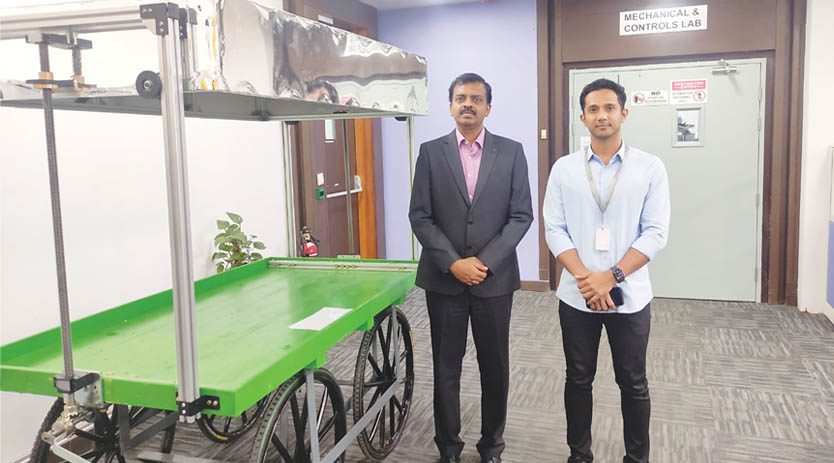An innovation with retrofitable canopy to reduce food loss and improve the livelihood of vegetable and fruit street vendors. Solution can save up to 25 percent of food loss in the marketplace.
In many regions of India, up to one third of food loss occurs through street vendors, due to harsh weather conditions and lack of access to affordable cooling. This food loss has a significant negative impact on vendors’ income and quality of life. Many of them earn less than $5 a day.
Trane Technologies developed a prototype of a low-cost Cooling Cart system with a retrofittable canopy that leverages the latest innovations in passive cooling technology. It can protect food from excess heat while helping street vendors with the reduction in food wastage and improved livelihood.
The cooling cart was developed under the company’s Operation Possible initiative, an employee-powered social innovation program. A design sprint team including employees from India, China, Vietnam, Belgium and North America took a bold new step in pursuit of innovation – to directly confront some of the world’s biggest challenges, aligned with the United Nations’ Sustainable Development Goals.
With the development of the Cooling Cart, Trane Technologies explored low- and high-tech ideas that could transform the lives of small holder farmers and small-scale livestock producers, reach a step change in food systems or increase the overall effectiveness of food management practices on the last mile delivery side of the food supply chain. Affordability and ease of use has been key throughout the development phase.
In many regions of India, up to one third of food loss occurs through street vendors, due to harsh weather conditions and lack of access to affordable cooling. This food loss has a significant negative impact on vendors’ income and quality of life. Many of them earn less than $5 a day. With this Cooling Cart system, which includes an overnight storage capability, it is expected that the shelf life of fresh fruits and vegetables will be extended by at least 1-2 days without significant weight loss. This means that street vendors will be able to sell more food as opposed to throwing it away, thus also increasing their net income. Wilson Lawrence, Vice President & General Manager, India Engineering & Technology Center, Trane Technologies said, “India, despite being an agrarian economy struggle with food loss and waste alongside widespread hunger. This contradiction of hunger and rampant food loss and waste is exactly why we made Cooling Cart as our first challenge of Operation Possible. We are working to do our part – using our collective intelligence, years of experience, and our passion, to find new solutions and pathways to ensure more people get the life sustaining nourishment they need and deserve, while reducing the impact on our planet.”
Nithin Mohan, CEO, Cambridge Institute of Technology, “We are excited to be a part of this great initiative by Trane Technologies. Our students were able to engage in the first hand-sessions of the first chapter of Operation Possible, where they help company identify and tackled ground-level challenges. Our students are looking forward to being a part of more such initiatives where they help resolve real world challenges.”
The canopy utilised in a Cooling Cart is an innovative radiative cooling technology which resembles a reflective film. It is extremely light and completely passive in nature, requiring no electricity to operate. The canopy itself includes a mechanical system which allows the height to be adjusted. It can be fully retracted and secured to double as an overnight storage container. It can provide a temperature difference of up to 10 degrees Celsius.
Cookie Consent
We use cookies to personalize your experience. By continuing to visit this website you agree to our Terms & Conditions, Privacy Policy and Cookie Policy.















